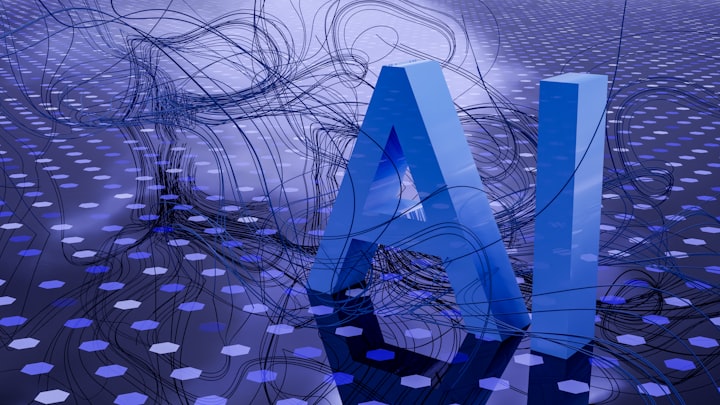WHAT ACTUALLY AI IS?
AI ADVANCEMENTS AND CONCERNS

Artificial intelligence, or AI, has become a buzzword in recent years. It is a rapidly evolving technology that has the potential to revolutionize the way we live and work. In this blog, we will discuss what AI is, how it works, and its potential impact on society.
What is AI?
AI refers to machines or computer programs that can perform tasks that typically require human intelligence. These tasks can range from simple tasks like recognizing patterns in data to complex tasks like playing chess or driving a car. AI is based on the idea of building machines that can think, learn, and adapt like humans.
How does AI work?
AI works by using algorithms and statistical models to analyze large amounts of data. These algorithms can then identify patterns and make predictions based on that data. For example, a facial recognition algorithm might be trained on millions of images to recognize different faces. Similarly, a voice recognition algorithm might be trained on millions of voice samples to recognize different voices.There are several different types of AI, including:
Supervised learning: This involves training a machine on a set of labeled data. The machine learns to recognize patterns in the data and can then use that knowledge to make predictions about new data.
Unsupervised learning: This involves training a machine on a set of unlabeled data. The machine learns to identify patterns in the data and can then group similar data together.
Reinforcement learning: This involves training a machine to learn from its own experience. The machine receives rewards or punishments for certain actions and learns to make decisions based on those rewards or punishments.
Artificial Intelligence, or AI, is a rapidly growing field that has the potential to transform the way we live and work. AI is the development of computer systems that can perform tasks that would normally require human intelligence, such as visual perception, speech recognition, decision-making, and language translation. With the advancements in AI technology, it has become possible to create machines that can learn, adapt, and improve on their own without human intervention.
The potential applications of AI are endless, and we are already seeing it being used in various industries, including healthcare, finance, transportation, and entertainment. In healthcare, AI is being used to analyze patient data and make more accurate diagnoses. In finance, AI is being used to detect fraud and prevent money laundering. In transportation, AI is being used to develop autonomous vehicles that can navigate through traffic and avoid accidents. In entertainment, AI is being used to create realistic characters in video games and to personalize movie recommendations on streaming services.
One of the most exciting areas of AI research is machine learning, which is the development of algorithms that can learn from data and improve their performance over time. Machine learning algorithms are being used to solve some of the most complex problems, such as natural language processing, image recognition, and self-driving cars. These algorithms can analyze vast amounts of data and identify patterns that humans may not be able to see. As the amount of data being generated continues to increase, machine learning is becoming an essential tool for making sense of it all.
Despite the many benefits of AI, there are also concerns about its impact on society. One of the biggest concerns is the potential loss of jobs as machines become more capable of performing tasks that were previously done by humans. There are also concerns about the ethical implications of AI, such as the use of biased algorithms and the potential for autonomous weapons.
To address these concerns, it is essential that we develop AI in a responsible and ethical manner. This includes ensuring that AI is developed with human values and principles in mind, such as fairness, transparency, and accountability. It also means investing in education and training programs to prepare the workforce for the changes that AI will bring.
In conclusion, AI is a rapidly growing field with the potential to transform the way we live and work. With its many benefits and potential applications, it is essential that we continue to invest in its development while also addressing the concerns and ethical implications that come with it. By doing so, we can ensure that AI is used to benefit society as a whole while also minimizing any negative impacts.





Comments
There are no comments for this story
Be the first to respond and start the conversation.